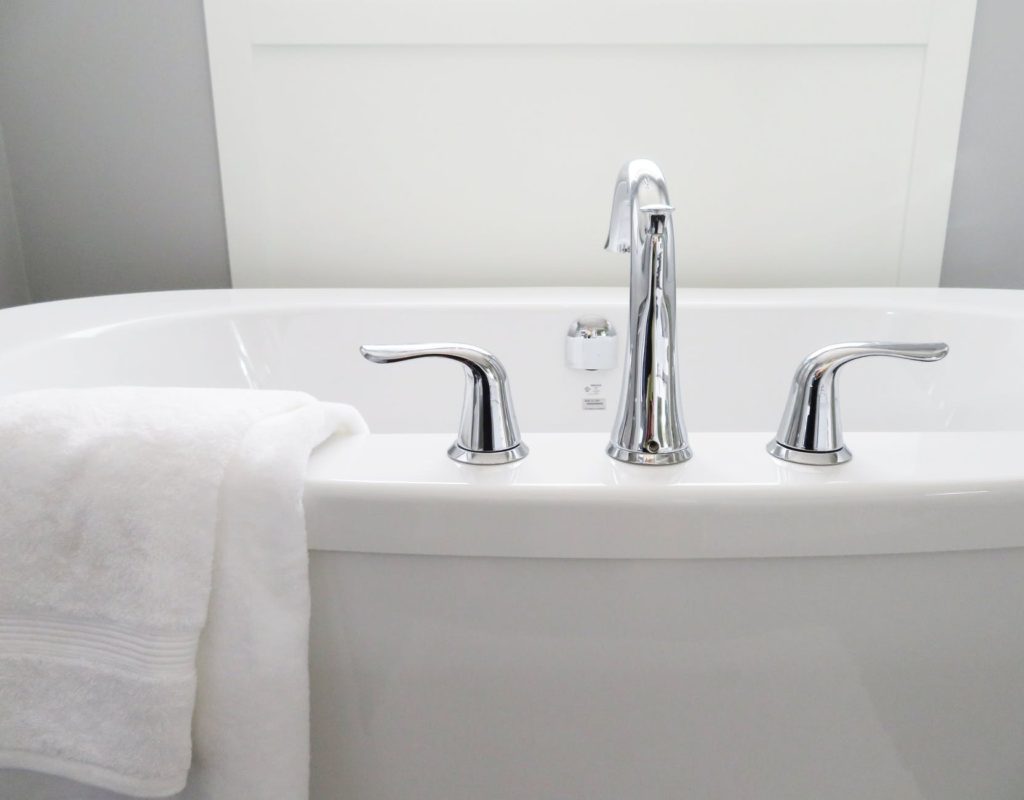 25 Feb 2019
25 Feb 2019
Adjusting Your Nighttime Routine: Tips for Better Sleep and Good Mental Health
For those people who struggle to get a good night’s sleep, have you considered that you might be your own worst enemy? There are some definite do’s and don’ts to observe, which include important measures that have a direct effect on your ability to sleep and maintain good mental health. Consistent, restorative sleep is closely tied to mental health when you’re tired, your mood suffers, you’re impatient, and you have trouble concentrating. Consequently, your sense of well-being is compromised, and symptoms of depression and anxiety may occur as a result.

What’s more, sleep is especially important for people recovering from drug or alcohol abuse. Sleep has a powerful healing effect on the body and mind, bolstering the immune system and strengthening your metabolism. It also improves your mental outlook, an important factor in recovering from the ravages of addiction.
Consider the following points if a lack of sleep is affecting your mental condition and ability to function on a daily basis.
Observe a Sleep Schedule
Many of us get to bed only when our daily responsibilities have been completed and, as such, fail to get the necessary seven to nine hours of sleep every night. Your body functions best when you follow a regular schedule, and going to bed at the same time and waking up every morning at the same time is the best way to recalibrate your internal clock. Also, stick with your sleep schedule through the weekend and on holidays so as not to disrupt your sleep schedule. Eventually, your body will fall into line and let you know when it’s time for bed.
Winding Down

You can’t expect to climb into bed and fall asleep straight away if you’re experiencing sleep deprivation and insomnia. It’s important to spend an hour or two winding down, so prepare yourself to sleep by observing relaxing habits such as reading a book, taking a hot bath, or engaging in meditation. These activities can calm your thoughts and slow your heart rate, both of which are necessary for you to feel sleepy.
Sleep-Conducive Environment
Insomnia can be a serious problem, leading to both mental and physical complications. If it persists, it might be time to take a close look at your sleep environment. People often make the mistake of leaving a TV or computer screen on at night or keeping a smartphone on the nightstand. These are disruptions that can prevent sleep. What’s needed is a dark and quiet environment, so consider installing blackout shades and using a white noise app or machine to mask any disruptive external sound. Pay close attention to the comfort of your bed, rough sheets, and heavy blankets may drive up your body temperature, making it hard to get to sleep.
Don’t Force It
As a kid, do you remember being told by a parent just to lie in bed until you got tired? It’s a convenient piece of parental advice, but it doesn’t work when you’re an adult with a sleep problem. Whether you’re tossing and turning or just lying in bed thinking about next week’s big client presentation or an argument you had with your spouse, you’re only making the situation worse. Instead, get up and sit quietly in a darkened room, or do some light reading until your eyelids start to get heavy.
Limit Food and Drink at Night
Ingesting caffeine at night is a bad idea if you suffer from insomnia, as is eating a meal too close to bedtime. Your metabolism has to work to process the food, and you won’t feel like sleeping. Some people like to have a few drinks before bed, thinking it’ll help them wind down after a busy day. Unfortunately, alcohol undermines the healing, rejuvenating REM sleep you need to feel good and stay healthy.
Think through your sleep habits if you’re having difficulty at night. You might find that a simple adjustment will make a big difference. A consistent nighttime routine, a restful sleep space, and a little willpower in the evening can restore your mental well-being and leave you feeling refreshed and reinvigorated during the day.
Image courtesy of Pixabay
 03 Oct 2018
03 Oct 2018
Coping With Addiction: How To Get Back On Track After A Relapse
For the millions of Americans who are living with an addiction, learning how to cope with the stress and pressure of getting sober can be overwhelming. Relapses are common, and they can bring a weight of guilt with them, which can in turn lead to more substance abuse. It’s a very difficult cycle to break, but it’s important to figure out the best ways to get healthy in every way–mind, body, and soul–so that you can get back on track without sacrificing everything you’ve worked so hard for.
Fortunately, there are several things you can do to help things fall into place after a relapse. From opening up communication with your family members to practicing meditation and learning how to relax, taking care of yourself is the first priority. Whether that means ridding yourself of guilt and shame or simply learning how to cope with stress, finding out what works for you will help you break the cycle for good.

Keep reading for some great tips on how to feel better and get healthy after a relapse.
Ask for help
It can be very challenging and humbling to ask for help, especially if you’ve already done it once before, but suffering a relapse is nothing to be ashamed of. It happens to many individuals who have made a commitment to turn their lives around, and it’s not an indication of failure. The key is to recognize the issue and ask for help as soon as possible so that you may begin rebuilding. Find a counselor, therapist, or group session you can join, or talk to your sponsor or a close family member or friend.
Relax
Stress is a major contributing factor to many relapses, so it’s imperative to learn how to cope with those feelings and reduce them. This might mean learning how to say no, finding a way to reduce your task load at work, or working on family issues.
Think about the things that bring you the most stress and how you can effectively make your life easier. In the meantime, you can practice meditation and/or yoga to help break down those feelings. This has long been a benefit for those who are struggling with stress and anxiety. Make sure you have a quiet space to relax in that is free of distractions. You can find out more about creating a meditation space here.
Forgive yourself
The way you handle your relapse is extremely important. If you feel guilt or shame, it will be nearly impossible for you to move on and make healthy choices, so it’s important to learn how to handle those emotions and how to forgive yourself. This may require the help of a therapist, or you might talk to your friends and family about your struggle. Sometimes, simply being open and honest about what we’re going through is the best way to move on.
Adjust your strategy
It?s always possible to make changes to the way you approach your sobriety, and it’s important to do so if you feel it isn’t working. You might take a look at the people you spend the most time with. Are they supportive? Are there people in your life who abuse drugs or alcohol when you’re around? It can be difficult to make major changes, especially when it comes to your relationships, but it’s critical to make your own health a priority.
Coping with addiction relapse is never easy, and it often takes time to get to the place you want to be in. Try to be patient with yourself during this time, and think hard about the way any changes you make to your lifestyle will affect you down the road. With a good plan, you can get your life back on track.

Constance Ray started Recoverywell.org with the goal of creating a safe place for people to share how addiction has affected them, whether they are combating it themselves or watching someone they care about work to overcome it. The goal is to share stories of hope from survivors who know that the fight against addiction is one worth having, because no matter how it affects you, life can get better.
 21 Apr 2018
21 Apr 2018
The Mental Health Benefits of Physical Self-Care
Saying the mind and body are connected is nothing new. The Ancient Greeks attempted to understand the mental phenomena of emotions and their complex connections to physiological order. That fascination continued through the Roman era, the Renaissance, and on throughout history — and that’s just Western European culture. Physicians and philosophers all over the globe have explored the mind and body connection since the beginning of time and even recent science backs up the claim that they are intrinsically connected.
If you are not taking care of your physical self, your mental health is likely not where you want it to be. For instance, one of the main symptoms of depression is poor personal hygiene. Addicts are another good illustration of this problem. Addicts turn to self-harm in the form of drug or alcohol abuse as a way to cope with their own mental health issues. While environmental and genetic components also contribute to the disease, the mind/body link plays its part.
Taking the time to take care of the physical self can have a helpful impact on your mental health and addiction recovery. In addition to seeking help and supervision through a physician, try incorporating the following self-care rituals into your routine.
Establish a Solid Sleep Routine
Sleep is awesome, so why do so many of us get so little of it? According to the American Sleep Association, 50 to 70 million American adults have some sort of sleep disorder, insomnia being the most common one. Sleep problems are common in addicts, as well. Drug and alcohol abuse disrupt the body’s natural rhythm along with the neurochemicals and hormones that help control rest. After a while, the body forgets how to rest properly.
Thankfully, you can retrain your body by establishing a sleep routine and following it religiously. It’s not just about going to sleep and waking up at the same times every day — although those two things are key. Practicing good sleep hygiene has a lot to do with how you spend the hours before bedtime.
- Limit stimulants including nicotine and caffeine.
- Invest in some soothing herbal teas you can drink leading up to bedtime to help brain and body relax.
- The glow of your television, computer and smartphone screens keep the brain alert. Turn them off and put them away an hour before bed.
- Turn your bedroom into a sanctum of rest. Buy yourself nice linens, keep the room temperature cool, and use a white noise machine or essential oils to create ambience.
- Read a chapter of a book before you fall asleep to help your mind wind down. If you are still not sleepy, read another chapter until you are.
Exercise Regularly
You may think exercise is just something you have to do if you want to lose weight, but it’s essential to the addiction recovery process. Drugs and alcohol trick your body to think it needs them by triggering the brain’s reward system. When you give up those substances, you can help beat cravings with exercise. Physical activity also stimulates that part of the brain while also releasing neurochemicals like dopamine and endorphins, which relieve pain and promote a positive mindset. You don’t have to train for a marathon to get these benefits, either. Just walking an extra half hour a day provides significant benefits.
Explore Healthy Stress Release

Finding some way to release stress and anxiety in a healthy manner is essential for addiction recovery. Meditation, yoga and hobbies like knitting help people tune out those thoughts and criticisms without having to use drugs or alcohol. Think of them like exercise for your brain. During these mindful exercises, you will experience negative thoughts. However, by recognizing those thoughts, dismissing them and returning your attention to your activity, you are training your brain to dismiss them on its own. The more you practice, the easier it becomes and your brain learns to automatically pass over self-criticisms in your day-to-day life so you can stay focused.
***
Since the mind and body are connected, your physical health has a significant impact on your mental health and vice-versa. When you struggle with a mental health issue like addiction, incorporating a solid sleep routine, exercise, and healthy coping mechanisms for stress all contribute to recovery. Incorporate daily physical self-care routines in your efforts to heal yourself holistically.
**Visit Brad’s website and learn more about becoming the best you here

 09 Feb 2018
09 Feb 2018
Choices = Energy
We all have bad days. It’s okay. But, it is essential to keep in mind that we all choose how much we allow our circumstances, at any given time, to influence our energy?positive or negative.
It?s okay to be human. We all make mistakes We all repeat the same slip-ups until we decide to choose another option?which often requires a paradigm shift. Changing one?s frame of mind is never easy. Change is hard!
Know what else is tough? Learning to walk and talk, but we did it?because we kept trying to learn. We were intentional about acquiring that skill because at that time, it was important to us.

At some point in adulthood, people get stuck in a cloud of shifting priorities. Work. School. Family. Church. Social engagements. We all?at one time or another?feel drained! The question is, what are we going to do about it?
For a change to happen, one must intentionally create new habits. These behaviors are meant to replace the old ways that were not contributing to our success. These new habits should be designed to impact areas in our lives that we need strengthened. Nothing changes, when nothing changes.
Meet Marty

Marty was just like you?busy, overworked, stressed. She?s a single-parent who works very hard to provide for her two boys.
One day, Marty decided that she was going to do something about her energy. She had been reading a book by Brendon Burchard, High Performing Habits, that inspired her to generate more positive energy by intentionally adopting simple habits that would allow her to do so.
On a Tuesday morning, Marty set 2 random alarms?one at 10:17 am , another at 2:29 pm?that prompted her to stop what she was doing and take 10 deep breaths. She was intrigued by how effortless and odd, yet apparently obvious this exercise seemed, because Marty had known for quite some time that she wasn?t taking breaks throughout her day to just breathe?and as a nurse she knew how vital breathing is to one?s well-being.

Her first alarm goes off. She gets up from the nurse?s station, walks outside, and starts to count 10 deep breaths. Once she has started breathing she is supposed to ask herself, ?what kind of energy do I want and need right now?? She thinks about her to-do list, the patients she is caring for, and then she feels gratitude.
?I am grateful that I have all of these things to do and that I am entrusted with these people to care for. I choose to BRING THE JOY!?
This heartwarming moment was a gamechanger for Marty. A few hours later, when her next alarm went off, she once again walked outside to get a breath of fresh air. She started to breathe and as she did she felt the tension release from off of her shoulders. She was in the moment. She had already ?brought the joy once.? She thought about what kind of energy she needed at that moment, then, like magic, she had laser-like focus as she intentionally dialed into her mind to generate the energy she wanted. She caught up her charting and made her rounds again?with the intention of bringing more joy!
Six months later, Marty still has her 2 alarms that go off, and she has found that she takes more time to be present, in the present. She is able to stay focused at work. She?s incorporated a 3rd alarm. This one goes off on her drive home. She breathes, releases the tension, and asks herself what kind of energy her family needs. These triggers, changed her behavior in a way that impacted her state of mind, her work, & family relationships. Marty took control of her energy production.

Another key aspect of generating energy is taking control of our health?optimize it. If it has been over a year since the last physical exam, ?we really should get one soon. We all have to start somewhere, and this is a good place. Finding out where to improve our health and our body, and then intentionally improving those areas will bless us with health, strength, and vitality.
Exercise plays a HUGE role in one?s ability to generate energy. A good place to start is in the morning. Wake up 10-15 minutes earlier, stretch, and do 5 push-ups. Do this Monday through Friday for a month. Get excited about waking up earlier to do this?after all, by doing this, you are changing the world (your world). Increase your exercise to, eventually, consistently exercising for at least 30 minutes a morning, 4-5x a week.
Robin Sharma said, ?Good health is a crown on the head of a well person that only a sick person can see.?

As we choose to do simple, different things like setting random alarms to breathe, breathing to intentionally set the tone, and optimizing our health, our bodies will reap from the choices we have sown. We will grow in health, mental clarity, and our ability to generate energy will have increased by leaps and bounds.
There are no shortcuts. Choices can and should be tough. Growth is never easy. Change is always possible. Change comes when we choose between comfort and wisdom?and choose to grow. It comes when we ask ourselves, ?What is TRULY best for me right now?? Then acting upon that answer.
Do you want the secret to life? Act. Do. Become.
Act on your choices, choose your reactions, and intentionally generate the energy and the feelings that are most important to you and will help you become the best version of yourself.
If you struggle with learning new habits, if you need help from a mentor to coach you as you strive to become all that you have the potential to become, or if you are ready to take it to the next level?career, relationship, personal life?then I can help you.
Click here to contact me to day for a free 30 minute consultation.
Get your copy of Brendon Burchard’s, High Performance Habits.

 29 Jan 2018
29 Jan 2018
How To Improve Your Positive Self-Talk With 4 Easy Steps
What is intrapersonal communication?
Intrapersonal communication is the process of talking to oneself, which is related to your constant internal dialogues, either consciously or subconsciously. Our intrapersonal communication helps to determine our self-image and self-awareness, which is the most basic level of communication, and helps us to understand who we are and what we think of ourselves.
Why is it important?

We can easily determine our self-esteem and self-perception through our internal communications, or intrapersonal communications. Obviously, in order to have a successful interpersonal relationship–communicating with others–we must first learn how to communicate with ourselves, understand who we are, and what we think of ourselves, and eventually, it will lead us to have a greater success in life. But how?
Follow these 4 steps to Improve your Intrapersonal Communication
Step 1

Your internal conversations have a huge impact on you and your personal well-being. Try to listen to your self-talk and be aware of your internal dialogue and whether it is positive or negative. Remember that negative self-talk can drain your energy or motivation while your positive dialogues can empower you with higher self-esteem and eventually improve your self-perception, which is going to help you to have a better feeling about yourself.
Step 2
Have you ever tried to monitor your thought on your ongoing basis? In general, it is easier to let our thoughts run randomly through our mind, but if we try to recognize our negative thoughts and immediately replace them with positive ones, we will be amazed by the result on our day-to-day life activities and relational communications.
Step 3

Try to eliminate your unwanted thoughts from intruding by saying or thinking about some words like ?STOP? or ?ENOUGH?, ?CLEAR?, QUIT?. You can also improve your positive self-talk through prayer, meditation, affirmations, and focusing on your enjoyable moments.
Step 4
Try to recognize the differences that your positive self-talk makes in your day-to-day life activities or communications. Pay attention to those changes like feeling calmer and more peaceful, which are going to help you connect with what is peaceful and good around you and you’ll become less concerned with trivial matters. After a while, you will achieve a more positive outlook on life and have more confidence in your abilities.



